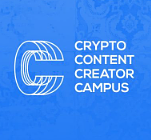
Creator Economy Gets Real: Lisbon Summit Tackles Sustainable Income & Corporate Disruption
As the creator economy booms, a Lisbon summit brings industry titans together to address the challenge of sustainable income, the rise of Web3, and the evolving role of major corporations.
Creator Economy Gets Real: Lisbon Summit Tackles Sustainable Income & Corporate Disruption
Lisbon, Portugal – The burgeoning creator economy, valued at over $104 billion and projected to nearly double by 2027, is facing a critical juncture. While millions are flocking to platforms like TikTok, YouTube, and Instagram, many creators struggle to translate likes and shares into sustainable income. This challenge is front and center at the Crypto Content Creator Campus (CCCC) summit, taking place in Lisbon November 14-16, bringing together industry leaders from Disney, Mastercard, TikTok, and beyond.
CCCC isn’t just another influencer conference. It’s a focused discussion on the practicalities of monetization in a rapidly evolving landscape – one increasingly shaped by Web3 technologies, shifting platform algorithms, and the growing involvement of established corporations. Lisbon, increasingly recognized as a European crypto hub, provides a fitting backdrop for these conversations.
Beyond ‘Likes’ and Towards Longevity
The creator economy's early days were often characterized by a ‘passion economy’ – individuals pursuing creative endeavors with limited expectations of substantial financial reward. But as the market matures, the need for sustainable income models is becoming increasingly urgent.
“The initial wave of creators were largely figuring things out as they went,” explains one attendee involved in creator funding. “Now, we're seeing a demand for more sophisticated strategies, diversified revenue streams, and a greater understanding of the business side of content creation.”
CCCC aims to address this need by focusing on practical strategies beyond traditional advertising revenue. Workshops on blockchain-based payment solutions, Web3 integration, and exploring new monetization avenues like digital collectibles and exclusive content subscriptions are central to the summit’s agenda.
Lisbon’s Ascent as a Crypto and Creator Hub
The choice of Lisbon as the host city is no coincidence. Portugal has emerged as a surprisingly progressive jurisdiction for crypto, offering favorable tax conditions and a relatively welcoming regulatory environment. This, combined with a thriving tech scene and a lower cost of living compared to other European capitals, has attracted a growing number of crypto startups and remote workers.
“Lisbon offers a unique ecosystem for creators,” says a local tech entrepreneur. “The combination of regulatory clarity, a supportive community, and a relatively low cost of operation makes it an attractive destination for those looking to build a sustainable business in the Web3 space.”
The city’s growing popularity is also attracting investment, with venture capital firms increasingly focused on startups building tools and platforms for creators.
Corporate Giants Enter the Fray
The involvement of established corporations like Disney, Mastercard, and TikTok signals a broader shift in the industry. These companies are recognizing the power of the creator economy and exploring ways to leverage it for their own benefit.
Mastercard, for example, is exploring blockchain-based payment solutions that could streamline creator payments and reduce transaction fees. Disney is investigating how Web3 technologies can be used to enhance storytelling and engage audiences in new ways. And TikTok, despite recent geopolitical challenges, remains a dominant force in the short-form video market and is actively seeking ways to support its creator community.
“These companies realize that they can’t ignore the creator economy,” explains a marketing consultant specializing in influencer partnerships. “They’re either partnering with creators, acquiring creator-focused companies, or building their own creator platforms. It’s a land grab for attention and engagement.”
However, the involvement of large corporations also raises concerns about potential centralization and control. Some creators worry that these companies may prioritize profits over the interests of individual creators.
“There’s a risk that these corporations will try to control the creator economy,” says one independent creator. “We need to ensure that creators retain ownership of their content and have a fair share of the revenue.”
The Future of Creator Revenue
CCCC isn’t offering easy answers, but it’s fostering a crucial conversation about the challenges and opportunities facing the creator economy. The summit is emphasizing diversification of income, exploring the potential of Web3 technologies, and advocating for a more equitable and sustainable ecosystem for creators.
Several key themes are emerging:
- Blockchain & NFTs: Non-fungible tokens (NFTs) are gaining traction as a way for creators to monetize their work and build direct relationships with their fans.
- Subscription Models: Exclusive content subscriptions are becoming increasingly popular, offering creators a predictable and recurring revenue stream.
- Creator Funds & DAOs: Decentralized autonomous organizations (DAOs) are emerging as a way for creators to collectively invest in projects and share in the profits.
- Brand Partnerships – Beyond Influence: More sophisticated brand partnerships, going beyond simple influencer marketing to collaborative content creation and long-term relationships.
As the creator economy continues to evolve, one thing is certain: the future of content creation will be shaped by those who are willing to embrace innovation, adapt to change, and prioritize the needs of creators. The conversations happening in Lisbon this week are a vital step in that direction.
